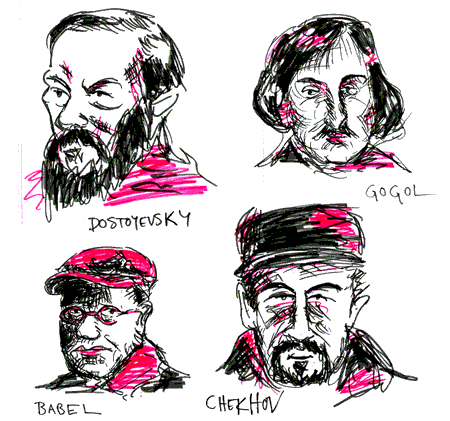
For New Year’s, our friends were nice enough to invite us up to their place on Lake Chautauqua in western New York.
“You can stay in the boathouse,” they said.
After two hours on the highway, they drove us to this boarded-up shanty.
“Here’s the boathouse!” they said.
Then they laughed at our horrified faces and drove us to the real boathouse.

On the way, they told us “Chautauqua” means “gunny-sack-tied-in-the-middle” in Indian.
Stupid Indians, I thought. Who knows what a gunny sack looks like?

It occured to me over breakfast that this would be a great place to write a book. I could sit at my desk and stare at the lake, white as a virgin sheet of paper, just waiting to be defiled with ink.
Here, some ice fisherman are defiling the lake with drills.
What a pretty scene for a defiling!

The Famous Fish Platter at GUPPY’S is outstanding. There’s a reason it’s famous: the fish is flavorful, and the french fries are crispy, with just the right amount of seasoning.
The decor was tartar sauce on top of the fish: above our table was a Christmas wreath decorated with a golden Budweiser sign.
It was my kind of restaurant.

No New Year is complete without a game of Drunk Scrabble. Drunk Scrabble is played after at least four glasses of wine. Proper nouns, abbreviations, and acronyms are all welcome and encouraged. Proper verbs, are included, too, like Google, even though it’s damned near impossible to end up with two Gs and two Os.
I am pleased to note that I came up with the evening’s top score: a whopping 33 points for “feat.” (The F was on a double-letter score, and the T ended up on a triple-word score.)
Happy New Year!

